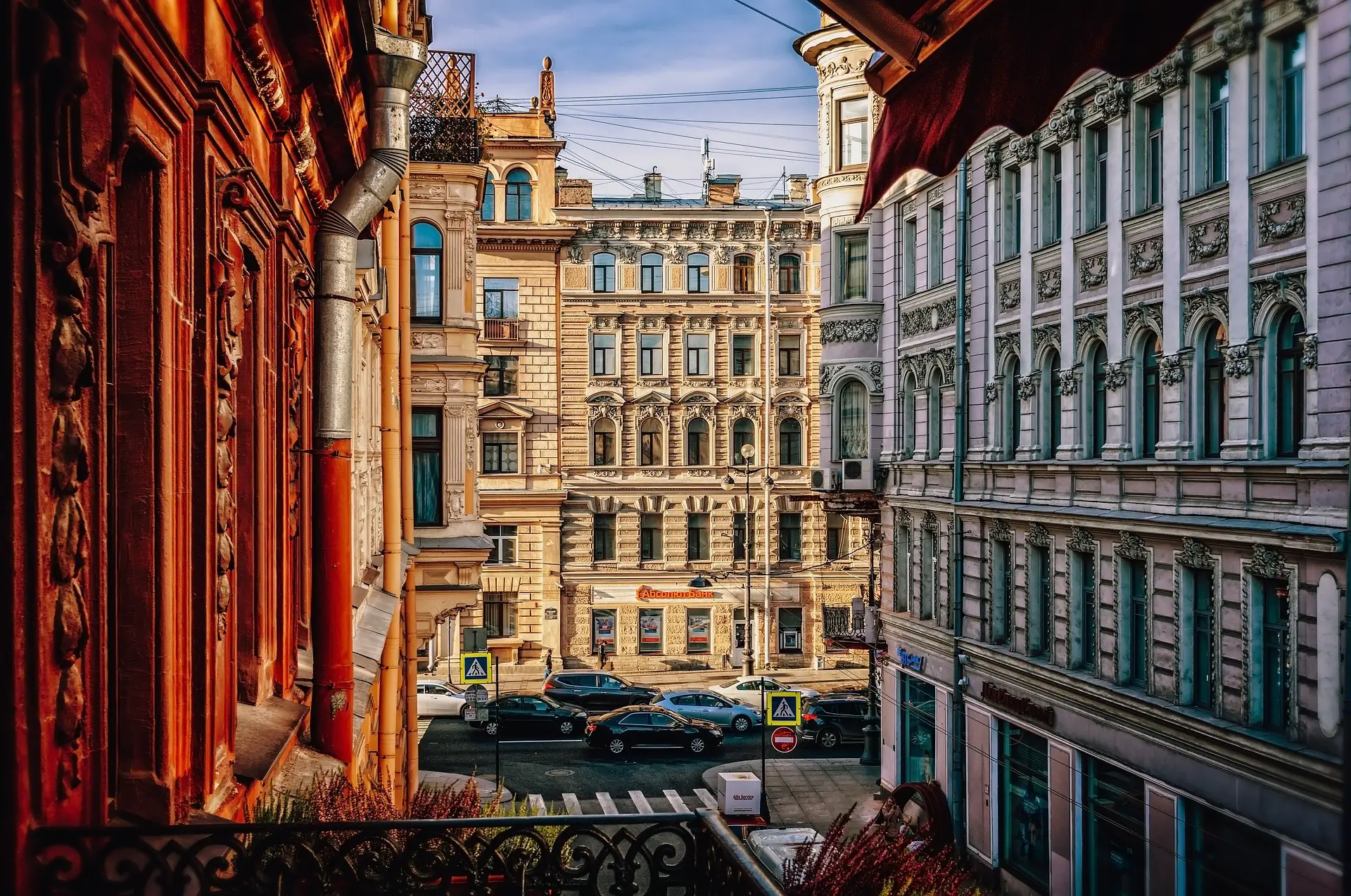The following is a guest post about doing business in Russia from Tom Stansmore, general director at Emerging Markets Group in St. Petersburg, Russia.
Emerging Markets Group is a service company combining Western management and standards with extensive Russian experience. Since 1994, our outsourced accounting, tax, and legal services have helped both large Fortune 500 and small companies in the St. Petersburg and Moscow regions to prosper in Russia’s changing business environment. We take pride in delivering quality services at a competitive cost.
Doing business in Russia certainly has a mixed reputation among foreign companies. From what I’ve seen from working with Western companies entering the Russian market, the single greatest cause for not achieving full potential stems from their failure to ask the right questions before investing and doing business in Russia.
Typically, Russia is not the first country international companies enter and many of those investors have developed “operational procedures” that have been used previously when entering other countries. If not flexible, previous experience can result in a fixed mindset and an internal corporate blueprint for investing abroad that is not able to adapt to local circumstances and customs for doing business in Russia.
The problem when applied to Russia, however, is that there are differences, both legal and cultural. When a fixed investment blueprint is applied, unexpected and often disappointing results occur. The purpose of this article is to outline some of the legal and cultural aspects of investing and doing business in Russia that are often not considered or completely overlooked by foreign investors.
Branches and Representative Offices for Doing Business in Russia
“Branches” and “representative offices” are forms of legal representation whose terms are often misunderstood in the West and confused with the term “subsidiary,” which they most defiantly are not. The only difference between a branch and representative office in Russia is that branches are deemed to engage in commercial activity (and subject to profit tax), whereas a representative office is deemed to be non-commercial (engaging in market research functions) and not subject to profit tax.
Both branches and representative offices in Russia are the legal registration of an office of a foreign company, typically referred to as the head office. They do not own any property (although they have a separate balance sheet), they do not own a bank account (although they open an account in a local Russian bank) and they do not even employ people directly. Both the equipment and bank account are owned by the head office, and although their employment contract is signed by the head of the branch or representative office, those people are actually employed by the head office abroad. Lastly, the head office abroad is directly liable for the actions of the branch or representative office in Russia.
A subsidiary, on the other hand, usually takes the form of a Limited Liability Company (LLC in English or OOO in Russian) in which a separate legal entity is created, complete with a general director and corporate liability shield. I’ve seen many instances in the last few decades where the lack of a corporate shield has resulted in the internal legal department of many companies in Russia dismissing out of hand the registration of a branch or representative office although I’ve never witnessed this lack of shield resulting in harm to the head office abroad. I have seen, however, the failure to consider some of the benefits of these alternative forms of representation result in missed opportunities doing business in Russia.
The key differences between a branch or representative office and a limited liability company in Russia can be summarized as follows:
| Branch/Representative Office | LLC | |
| Registration/Liquidation | It takes longer to register (30 working days from the date of submitting the documents) and it is more expensive (the State Fee for registration is 120,000 RUB approx. 1 646 Euro). It takes less time to close (by resolution of the foreign legal entity, registration of the closure will take 15 working days from the submission day. | It takes less time to register (within 3 working days from the date of submitting the documents) and it is cheaper (state fee is 4 000 Rub approx. 55 Euro). It takes longer to liquidate the OOO: you will need to go through a liquidation procedure that may take from 6 months to a year. |
| Liability | The foreign legal entity is liable for the obligations of the branch or representative office in Russia. | The LLC is responsible for its obligations and the parent is protected by a corporate shield (which may or may not insulate the parent depending on the circumstances). |
| Management | The head of the branch or representative office in Russia acts on the basis of a Power of Attorney. The general director may be either a Russian citizen or a foreigner, provided the foreigner obtains a Russian work permit. | An LLC may have more than one general director, appointed by corporate resolution. The company’s charter may slightly limit their powers (or divide them in the case of having more than one). The Director(s) may be either a Russian citizen or foreigner, provided the foreigner obtains a Russian work permit. |
| Financing | Financing is the obligation of the foreign head office and may be made at any time and is not subject to currency control issues. | Financing provided by the shareholder is conducted via corporate resolutions via contributions to the charter capital or assets or via dept. |
| Taxation | Russia’s basic corporate tax system is applicable and includes 20% VAT (if applicable), corporate property tax, contributions on the gross payroll and profit tax (20%). As indicated above, however, representative offices in Russia not engaging in commercial activity do not pay profit tax. The net profit of a branch may be repatriated to the headquarters without any additional taxation. | Russia’s basic corporate tax system is applicable and includes 20% VAT (if applicable), corporate property tax, contributions on the gross payroll and profit tax (20%). The after-tax profit of an LLC is distributed to shareholders via dividends which are further subject to withholding tax when paid (5% -15% depending on terms of any applicable double tax treaties). |
| Importation | Branches have difficulty in obtaining the necessary importation certificates/declarations. | If the importation of goods to Russia is a key element to your intended activity, the LLC is the better option. Keep in mind, however, that transfer pricing documentation will be required for transactions between affiliated companies when their volume exceeds 60 million rubles ($860,000). |
The Registration and Reporting Processes for Doing Business in Russia
Once the form of representation is selected, those coming to do business in Russia believing that because they are bringing jobs, technology, and know-how, they will be embraced by the authorities will be disappointed.
Regardless of whether you chose to do business in Russia as a legal entity, branch, or representative office in Russia, the registration process is also often the source of initial surprise for foreign investors. Investors doing business in Russia are usually not accustomed to the rejection of documents by registration officials for minor discrepancies (just a different office number on the corporate extract versus the shareholder resolution to open the office, for example, can bring the registration to a halt).
The company registration process in Russia should be viewed as a formal notification by the applicant to the authorities about their intended activities, who is responsible, and where to find them. Conducting business in Russia through a virtual address is not accepted by the Russian authorities who are on constant vigil against fly by night companies. As such, among the required documents is a letter from one’s future landlord as well as personal information about the future general director or head of the branch or representative office in Russia. It is also not uncommon for the authorities to actually visit the premises during the registration process to confirm the physical presence of the applicant at the indicated address.
Once an entity has been registered, the next step is to open a bank account, usually with an affiliate office of an international bank with whom that company has worked in the past. Russian foreign currency control regulations, therefore, become the next area of law where foreigners are out of their element in Russia. Even when working with the Russian office of their international bank, foreign investors often feel that despite the correspondence coming in English, they are still speaking a foreign language.
Even the bank with whom companies have worked for many years and in multiple jurisdictions require the same voluminous number of documents (notarized and apostilled) to open an account as would a new client, fresh off the street. The banks’ propensity for documentation stems from the fact that the local office of one’s international bank is required by Russian law to act as an agent of the Russian Central Bank. As an agent of the Russian Central Bank, one of their fundamental responsibilities is to enforce Russian foreign currency control regulations. In fact, failure to fulfill this role may result in the Russian Central Bank suspending its banking license.
Ask First before Doing Business in Russia
Even before the time of the Vikings, Europe was doing business in Russia and was attracted to the abundance of resources and the great potential of the region. At the same time, differences in language, culture, and history have left may foreigners confused as to how to go about doing business in Russia.
Since then, although the laws have evolved, Russia remains a land of great potential, but foreigners who remain inflexible in their approach to doing business in Russia often find themselves in difficult situations and it is Russia’s reputation that suffers along with the investor.
Perhaps it’s partially due to the fact that Russians generally look like their European counterparts and are, therefore, expected to think and act similarly. Russia, however, spans from China, through the Middle East and all the way to Europe, and its history and culture are like no other.
Russian law provides for a variety of forms that foreign representation may take, and each has unique features that will allow or limit the activities of your operations. When the branch of a foreign entity receives payment from a Russian client, for example, the burden of complying with Russian foreign currency control regulations shifts to the client who may or may not be amenable to the additional documentation required to complete the transaction. Many times, I’ve seen this opportunity missed or misunderstood as the Russian clients (who were known before the registration process had begun) were not asked if transfers to a foreign-owned bank account would be problematic or not.
The foreign companies that approach their investment and doing business in Russia with an open mind and flexible blueprint have a much greater chance of success. Not very long ago I would have advised that those who sent a delegation to physically travel to Russia to meet with prospective clients, management team, and advisors were a good indicator of the likelihood of success. Things have obviously changed recently, and physical travel has become substantially more difficult. As people become more accustomed to alternatives such as video conferencing this will most likely become the new norm. Regardless of its form, however, asking the right questions before investing and doing business in Russia remains crucial.
Want to know which form of legal representation is best for your business in Russia? Reach out to us at contact@expatriant.com and we would be happy to walk you through the options and put you in touch with a reputable consultant.
Looking for other guides on doing business in Russia? Check out our other Doing Business in Russia guides.


